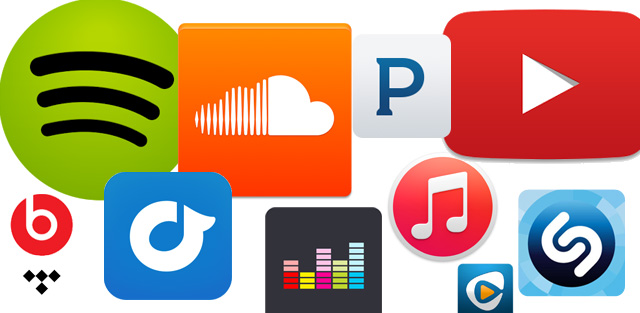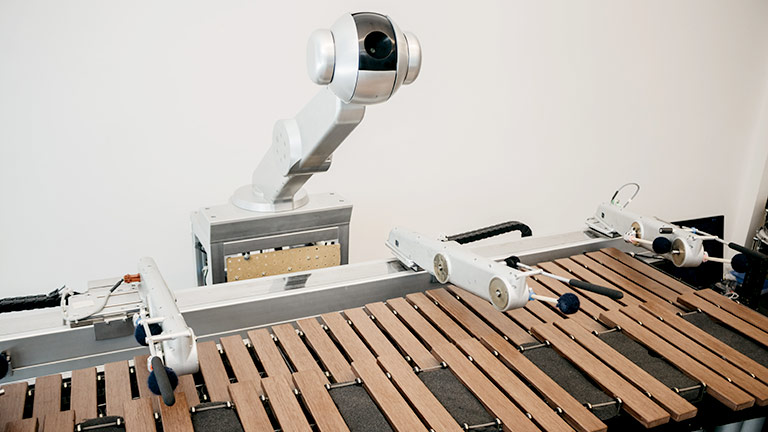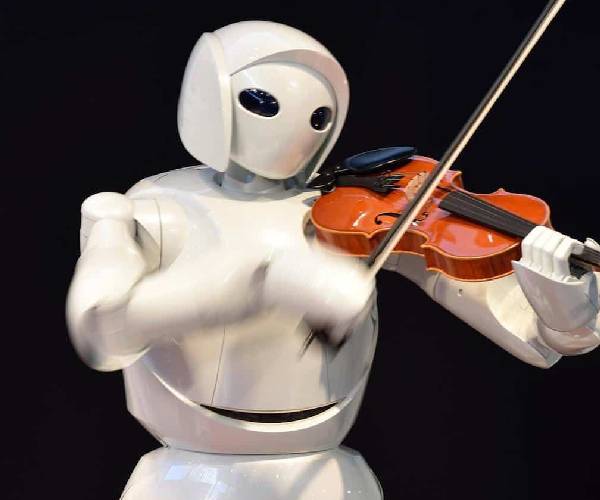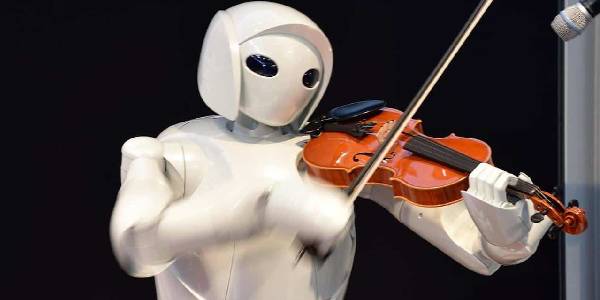Cobots Entering The Music Industry
It is a fact known far and wide that robots, artificial intelligence, and technology, in general, is changing the way day to day lives run, radically. From the way people shop to the technique the temperature of homes is controlled to the manner banking is conducted, everything has been impacted. Cobots are even altering the way manufacturing is done. Essentially, there is no field which left untouched.
In this feature, we discover how the rise of Robots and AI impacts the Music World. As per the Collaborative Robots Companies in Canada, AI is transforming the way we listen to music and the way it is made. Its effect can also be felt on the mode of the running of the entire music industry. While the pace at which AI is evolving remains breakneck, one can only speculate on how robots and related technology will influence the music segment in the long-term. But some apparent changes have occurred.
- AI is now being used to identify upcoming and unsigned artists. For example, Warner Music Group acquired a small startup called Sodatone. The startup has an algorithm that utilizes data from social platforms, streaming apps, and tours to pinpoint promising artists.
- AI is also automating complicated processes in the industry. The ideal example of it is a contest that was held sometime back between lawyers and the AI algorithm called LawGeex. The competition tested which group will be able to spot errors in 5 non-disclosure agreements. The 20 experienced attorneys took 92 minutes to review one contract. The AI took 26 seconds. It was not only faster but also more accurate. While the lawyers could find errors with an 85% accuracy, the AI got them 94% times.

- Another revolution that technology is bringing to the world of music is in rights and royalties. There was a time when radio was the only place where songs were heard, and companies only needed to track those few hundred thousand performances in a year. Today’s era is that of streaming. The same song can be streamed billions of times across many channels. Keeping track of them to pay rights and royalties is vital.
This is where AI steps in- they can aid in keeping an eye on all channels where a song is played, identify a venue where unlicensed music is streamed or pinpoint songs which either have the wrong metadata or missing it entirely. An example of such technology is Audiam and MediaNet, the two companies bought by SOCAN for this requirement.
- Even the marketing field of the music industry is not exempt from the touch of AI, robots, and cobots. For a long time, we saw marketing as more of a visual factor. Lately, people have realized that audio branding works just as well if not better. Using robots and AI together, information can be gathered to understand:
o The right tone of music needed to be produced.
o The target audience of the music.
o The correct volume of the music.
How does this data help? It ensures that the music suits a particular group of people, which makes marketing far more result-oriented. A quintessential example is the music used in the hospitality sector. Through this information, music can be tailored to fit each class of visitor to a hotel.
- AI has also been employed to identify songs and convert spoken lyrics into text that is searchable by a user. They do so through melodic analysis and pattern recognition. While there is an obvious use of this technology in the music world, the more important one is obscure. Through such AI, mashups, and cover versions posted on YouTube and Facebook can be identified.

Ask any of the many Collaborative Robots Companies in Canada or the USA, and they will state that the music sector has wielded robots for many years. Shimon, the robot that studies massive datasets collected from famous musicians to write its own work, has been around for donkey’s years.
The robot, which performs its own music, is a prime example of how music and technology are merging. Check out here how cobots, robots, and AI will change it in the coming years!





